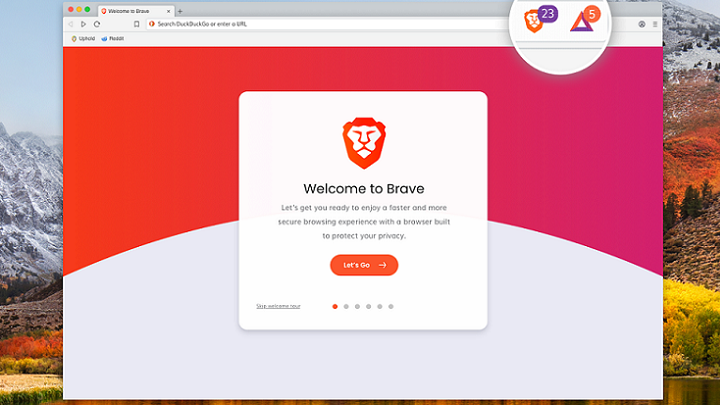Browser Earned Money Without Users Knowing
The Brave web browser generated money by swapping links typed in by users with its own.

Brave is a browser based on the chromium engine, the same as for example Chrome from Google, but from the beginning its creators boasted about the users' privacy. Unlike the competition, their product is supposed to provide privacy and security while browsing the Internet, and the application itself is not supposed to collect too much data about us. It's certainly nice for an Internet user that someone is trying to reach him/her through such positive marketing (especially in light of recent accusations against Google). However, it is known that nothing is for free, and developing a web browser is a powerful project that requires a lot of effort and money, so somehow it has to pull its own weight - most often it is income from advertising or money collections. The creators of Brave approached the subject differently, which outraged Internet users. It turned out that the program was changing the suggested links on various websites (including those related to cryptocurrency trading) while the user typed in the link. This means that when someone finished typing and clicked "enter", they entered the page they wanted to visit, but from a referral link, so-called "reflink". If a user entering the website from the "reflink" would make a purchase on it, the referrer (in this case, the creator of the browser) would receive a commission.
What's the whole discussion about?
In theory, users do not lose anything and the creators of the browser can earn money and continue to provide their services. However, the situation is quite controversial and unclear, because the user is informed neither about this feature nor how to disable it if they do not want to use it. What makes the matter even more controversial is the fact that Brave has signed a partnership deal with Binance, a cryptocurrency trading company, and most users point to the use of "reflinks" from this website. It is worth noting that this is not the first time Brave has stirred such controversy, because some time ago it turned out that its creators earned money from working with the "eToro" platform by placing a link on the homepage of the browser and charging a commission from every user who registered using this link. The president of the company behind the browser, Brendan Eich, explained that they are indeed partners with Binance and make money on affiliate links, but that no information about users is collected in this way. Furthermore, after the latest update, we can disable the autocomplete option by entering "brave://settings/appearance" in the search box and unchecking "Show Brave suggested sites in autocomplete suggestions". From next releases this feature should be disabled automatically.
- For 12 years, he’s been hunting for his hard drive with 770 million dollars worth of Bitcoin buried in a landfill. Now, a new chapter of his journey is just getting started
- New military shooter is set in a big open world where the match never ends. However, the trailer reveals a serious issue
- Today’s Wordle hint and answer on July 30, 2025. It's a real head-scratcher
- Internet
- Brave (browser)
- viewers
- advertisements
- Bitcoin / BTC / cryptocurrency
0

Author: Mikolaj Laszkiewicz
Have been working at gamepressure.com since May 2020. First, he was a newsman in the Technology department, over time he began to get involved in games and journalism, as well as edit and supervise the Technology newsroom. He previously shared his thoughts on video games in, e.g. various thematic groups. A lawyer by education. He plays on everything and in everything, which can sometimes be reflected in his reviews. His favorite console is the Nintendo 3DS, he plays a new FIFA every year and tries to broaden his gaming horizons. Loves broadly understood computer equipment and disassembles everything that falls into his hands.
Latest News
- This is expected to be the biggest year in the company's history. Blizzard prepares an offensive that will overshadow previous years
- Bethesda envied CD Projekt RED? Starfield may undergo a Cyberpunk 2077-style metamorphosis
- Season 2 has just started, and Todd Howard is already writing the script for the third one. Fallout 5 will be changed by the TV show
- 5 games to grab on Amazon Prime Gaming. Among them, a collection of RPG classics
- My experience attending the 2025 Game Awards, and why I loved it

